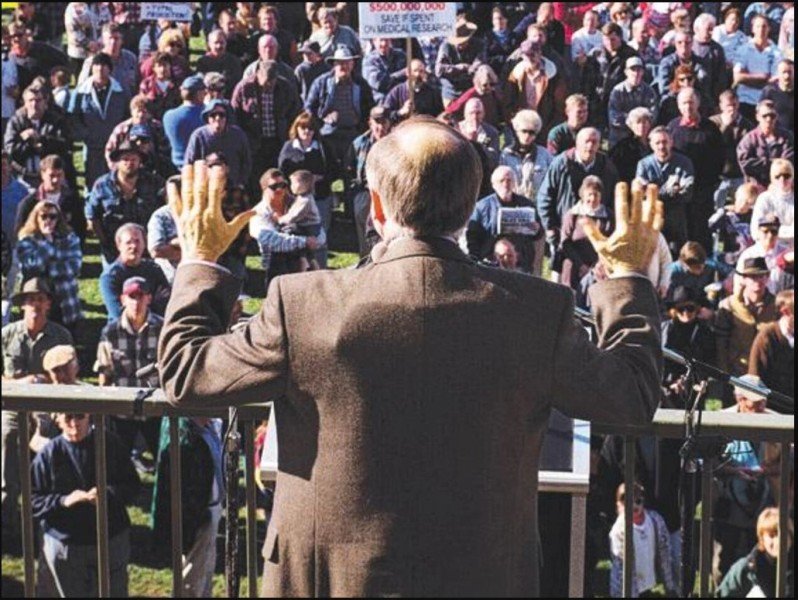Why You're Not Right on The Voice (But You're Not Wrong Either)
People who disagree with you are not, mostly, moronic villains. They deserve to be heard just like you do.
It’s easy to forget this when there’s a polarising yes-or-no choice, and it is compulsory that you choose. That’s what is happening with the upcoming referendum.
You don’t need to tell anyone how you intend to vote, that’s up to you and your conscience. What is beyond question is that you have a responsibility to engage in the debate. And by engaging, you’ll become a better leader in all respects.
Now, engaging doesn’t mean listening to people with whom you already agree.
Because in this debate, like so many, there is no right or wrong. There are facts, but even they are problematic: increasingly facts are used selectively and without context by warring parties to prove their points. And you can never know all the facts.
There is, only, what you believe.
Why do you believe what you believe?
What we believe is based on our experiences, family, culture, the values we've developed throughout life. What you believe is valid. And what the other side believes is valid too.
We can never be better if all we do in a debate is commit to being right. Real leaders know that – they get curious, not confronted, when they hear the opposing view. When asked about changing his mind and switching political parties, Winston Churchill said: “To improve is to change; to be perfect is to change often.”
When you’re being told something that isn’t aligned with your beliefs, those very beliefs are challenged. The easy path is to favour information that supports your belief and to downplay information to the contrary.
“What if you could love yourself enough to be confident that your own circumstances are valid, and then think outside them, understanding the complexity of human experience? ”
Or there’s the harder path. To take on a new belief you have to change what you think of yourself. But — and I’ll keep saying this — leadership includes doing things that are hard.
So, what if you could love yourself enough to be confident that your own circumstances are valid, and then think outside them, understanding the complexity of human experience?
What if you could recognise your own resistance and have the courage to put the other side’s experience on equal footing with yours? After all, when you feel resistance, that means you’re on the brink of learning something. In that moment, you can choose to be fascinated and ask more. Or you can choose to be offended and dismissive.
Voting in a referendum is not about winning an argument. It’s not about valuing your freedom of opinion above the fairness of listening to others. And that’s the Australian way — “fairness matters more to Australians than freedom” according to Rebecca Huntley (as one of Australia’s leading researchers on social trends, she’d know — check out her Quarterly Essay from 2019).
Voting in a referendum is about contributing to the greater good. And it’s a privilege.
Leadership is leading, going first. So don’t wait to be told how to vote. Engage. Listen to understand, not to respond. Maybe you’ll change your mind, maybe you won’t. But you’ll surely learn something. And you’ll be a better leader for that. It’s a habit that you can start now, in this critical moment for Australia. And you can use it in your business, finding new solutions and opportunities that you’d never have come across otherwise.
(And here’s a photo of former PM John Howard in 1996 wearing a bullet-proof vest under his suit at Port Arthur, announcing gun controls. At the time I criticised him. I believed that by focusing on gun ownership he was deliberately distracting us from the real, more complex issue behind mass shootings: mental illness. I was wrong. I now believe that this was a brave, visionary moment of leadership greatness for which I am extremely grateful. And I still believe we haven’t done enough on mental illness.)

